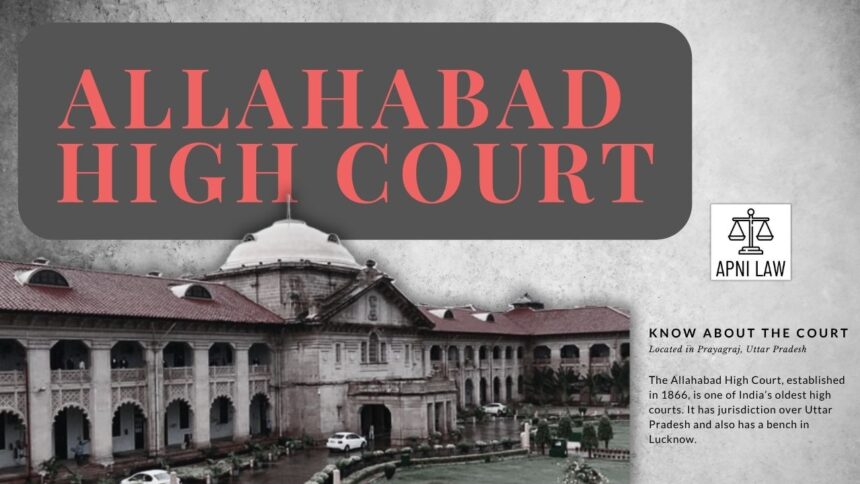Introduction
The Allahabad High Court addressed a long-believed restriction under the UP Recruitment of Dependents of Government Servants Dying in Harness Rules, 1974 (“1974 Rules”). It held that when a government servant’s wife has pre-deceased him, the exclusion of an unmarried brother from the definition of “family” under Rule 2(c)(iv) does not apply. The decision ensures that eligibility for compassionate appointment is not unfairly denied to dependents in such situations.
Facts of the Case
The deceased government servant died in harness on 9 October 2015. His wife had already passed away, on 12 February 2010. The petitioner, who is the deceased’s unmarried brother, claimed dependency on the deceased employee for his livelihood. The competent authority rejected the claim for compassionate appointment on the ground that the deceased was already married at the time of his death, and under Rule 2(c)(iv) an unmarried brother is included only if the deceased was unmarried. The petitioner challenged this decision before the Allahabad High Court.
What the Court Says
The Court emphasised that the 1974 Rules are beneficial legislation and must be interpreted liberally to give full effect to their object. It held that the exclusion of the unmarried brother under Rule 2(c)(iv) does not apply when the deceased employee’s wife had pre-deceased him. The Court reasoned that in such a scenario, the rationale behind excluding the unmarried brother, namely, the existence of a surviving spouse, falls away, since the spouse is no longer alive.
Relying on the Supreme Court’s precedent in K. H. Nazar v. Matthew K. Jacob (2020), which held that beneficial statutes must be given the widest amplitude, the bench declared the impugned rejection order unsustainable and directed that the petitioner’s claim be reconsidered.
Implications
This ruling has important practical consequences. It clarifies that when a government servant dies and his spouse has already passed away, his unmarried dependent brother cannot be automatically excluded from the definition of “family” for compassionate appointment. Government departments must apply the 1974 Rules in light of this interpretation and ensure that dependents are not denied relief merely due to technical wording. For claimants, this decision opens a potential avenue for relief in cases where they were earlier rejected on the basis of Rule 2(c)(iv). Legal practitioners should advise clients accordingly and revisit earlier rejections in similar facts.
For any specific query call at +91 – 8569843472
Conclusion
The Allahabad High Court’s decision reinforces the principle that rules designed for the benefit of dependents should not be construed in a manner that defeats their object. By allowing an unmarried brother to claim compassionate appointment when the employee’s wife had pre-deceased him, the Court has removed an arbitrary barrier in the 1974 Rules and reaffirmed the liberal construction owed to welfare-oriented statutes.








